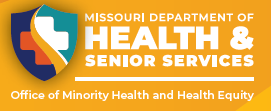November 4, 2025

Webinar: Behind Abridge’s 95% + Retention Rate: By Clinicians, For Clinicians, November 10
Clinicians love using Abridge: Month-over-month user retention across the platform is 95%+, an astounding benchmark for a new technology in healthcare. The secret is simple – Abridge is designed by clinicians, for clinicians.
Abridge’s CEO and Co-Founder is a practicing cardiologist and there are clinicians in crucial positions at every level of the company. Each aspect of the platform is designed in partnership with clinicians at Abridge because they know firsthand what’s at stake: burnout, work satisfaction, and the daily grind of documentation that draws focus away from what really matters – delivering exceptional patient care.
In this session, hear how Abridge’s deep clinical roots shape everything, from product design to implementation, ensuring that ambient AI technology feels intuitive, trustworthy, and built for the way care actually happens.
In this webinar, you will learn:
- The secret to Abridge’s 95%+ retention rate,
- How clinicians at Abridge drive partner experience, and
- About the clinician-driven product roadmap.
Cost: Free
When: Monday, November 10, 12:00 p.m. – 1:00 p.m.
Click Here to Register



